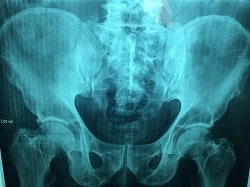By guest writer Claire Thornber - Founder of The Cauda Equina Syndrome Association CIC.
Despite the reassuring increase in awareness for Cauda Equina Syndrome over recent years, awareness of the Red flags does not change things for patients living with the condition.
There are huge issues with non-existent/inadequate care pathways within the NHS and education of the chronic, post-operative issues of cauda equina syndrome. Referrals to services at spinal units are notoriously difficult to obtain, and even though cauda equina patients are entitled to receive treatment. Patients face a battle for treatment, particularly those who are perhaps perching on the threshold of the criteria for bed space and rehabilitation.
Ultimately, many people living with CES are still not getting the care/support/rehabilitation/understanding they so desperately need to minimise the trauma and social isolation they experience.
The stories we repeatedly hear in our support group motivate us in developing our dedicated services for patients. It is so important to acknowledge all the nuances of cauda equina syndrome.Often, in a genuine effort to address incontinence, mobility and pain, the more personal problems of intimacy, relationships, and self esteem are often overlooked. These are as damaging to a patient’s wellbeing, as living with the physical restrictions are.
Our aim is to reduce the impacts of cauda equina syndrome as much as possible, through education of healthcare professionals and service providers whilst supporting the patient in all aspects of lifestyle, management and selfcare.
Spinal centres simply do not have the resources to cope with the under reported numbers of cauda equina patients. Alternative pathways need to be created to deal with these complex issues with early intervention and clear advice for healthcare professionals. That is why rehabilitation centres like STEPS are so important to cauda equina syndrome sufferers because it throws them a much-needed lifeline.We believe that when the NHS start recording CES cases that occur annually in every GP’s surgery or hospital( not just through neurology services in specialist centres), the numbers will prove to be unsustainable within the current parameters.
Cauda Equina Syndrome patients, living with incomplete spinal cord injuries outnumber those with complete injuries every year, and yet care pathways and access to services are only accessible to a small percentage.
Once the NHS acknowledges the importance of recording this information and gets to grip with the figures, the true cost of CES, both in litigation and in the personal lives of so many, will force the change needed to improve outcomes for this patient group.
It is our privilege to support people living with cauda equina syndrome and humbling to see how they show courage and determination through the most difficult times. We are blown away by the love and support shown between complete strangers who simply share the same condition.
We hope that one day cauda equina syndrome will truly become the rarest of conditions it is reputed to be.
The next support group for people with Cauda Equina and their carers, family and friends is on Tuesday 26th November at 10:30am at STEPS Rehabilitation, Alexander House, Troutbeck Road, Sheffield S7 2QA.
The event is free and you can register your interest by following this link.
